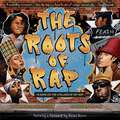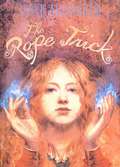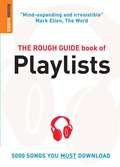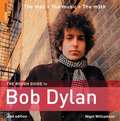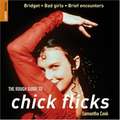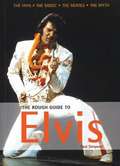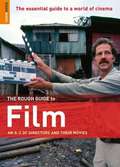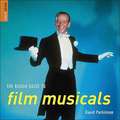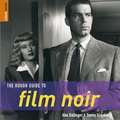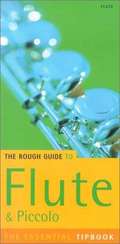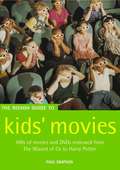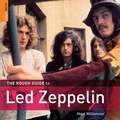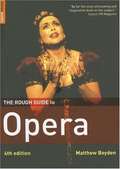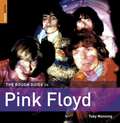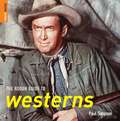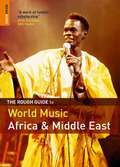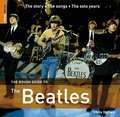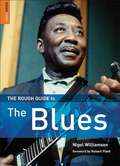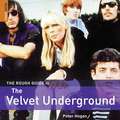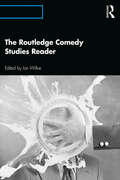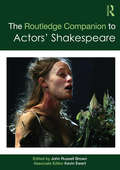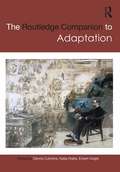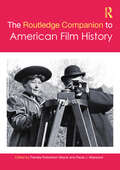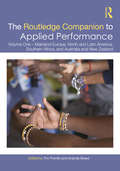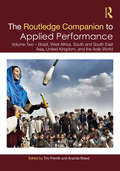- Table View
- List View
The Roots of Rap: 16 Bars on the 4 Pillars of Hip-Hop
by Carole Boston Weatherford"Carole Boston Weatherford, once again, delivers a resounding testament and reminder, that hip-hop is a flavorful slice of a larger cultural cake. And to be hip-hop-to truly be it-we must remember that we are also funk, jazz, soul, folktale, and poetry. We must remember that . . . we are who we are!" -Jason Reynolds, New York Times best-selling author"Starting with its attention-getting cover, this picture book does an excellent job of capturing the essence of rap . . . This tribute to hip hop culture will appeal to a wide audience, and practically demands multiple readings." ―Booklist, STARRED REVIEW"No way around it, this book is supa-dupa fly, with lush illustrations anchored in signature hip-hop iconography for the future of the global hip-hop nation." ―Kirkus Reviews, STARRED REVIEW"With short, rhyming lines and dramatic portraits of performers, the creative team behind How Sweet the Sound: The Story of Amazing Grace offers a dynamic introduction to hip-hop. . . . This artful introduction to one of the most influential cultural movements of the 20th century pulses with the energy and rhythm of its subject." ―Publishers Weekly, STARRED REVIEWExplore the roots of rap in this stunning, rhyming, triple-timing book, now available as a board book!A generation voicing stories, hopes, and fearsfounds a hip-hop nation.Say holler if you hear.The roots of rap and the history of hip-hop have origins that precede DJ Kool Herc and Grandmaster Flash. Kids will learn about how it evolved from folktales, spirituals, and poetry, to the showmanship of James Brown, to the culture of graffiti art and break dancing that formed around the art form and gave birth to the musical artists we know today. Written in lyrical rhythm by award-winning author and poet Carole Boston Weatherford and complete with flowing, vibrant illustrations by Corettta Scott King Award winner, Frank Morrison, this book beautifully illustrates how hip-hop is a language spoken the whole world 'round, and it features a foreword by Swizz Beatz, a Grammy Award-winning American hip-hop rapper, DJ, and record producer.
The Rope Trick
by Lloyd AlexanderIt's magic! The great American storyteller Lloyd Alexander conjures an engrossing tale of a bewitching magician. Lidi is not only beautiful, she has the talent to perform the greatest magic feat imaginable--the rope trick. But she must find the one master who can teach her how. On her quest to find master magician Ferramondo, she meets some traveling companions who all help on the journey: a child with true supernatural powers, a handsome outlaw with a price on his head, a successful entrepreneur who wants her in his troupe. But when the child is kidnapped, Lidi must abandon the search and summon her own powers to save the girl. The thrilling conclusion is Alexander at the top of his form in a remarkable fantasy that is both light and dark, funny and serious, believable and mystical. As always with an Alexander novel, the real magician is the storyteller himself.
The Rough Guide Book of Playlists
by Mark EllinghamFor late-comers to the iPod revolution or owners who simply want to learn how to get more from their music player, this guide is the perfect resource.--"Metro."
The Rough Guide to Bob Dylan
by Nigel WilliamsonBob Dylan is the ultimate singer-songwriter - revered, enigmatic and responsible for a staggering number of classic songs. This second edition of The Rough Guide to Bob Dylan demystifies the man and the music, exploring his life, his lyrics, and the legends that surrounded them. The Life: from Minnesota to Manchester, from the Albert Hall to the Never Ending Tour, The Music: the 50 greatest songs and the stories behind them, plus albums, bootlegs and compilations, The Movies: Dylan on screen and soundtracks, from Pat Garrett & Billy the Kid to No Direction Home, Dylanology: the wisdom of Bob, comic songs and curios, plus books, fanzines and websites.
The Rough Guide to Chick Flicks
by Samatha CookThis covers everything, from the history of cinema and the different films made around the world, to the stars, the directors, people behind the scenes, details on costume design and many film reviews.
The Rough Guide to Elvis
by Paul SimpsonJanuary 2005 was the 70th anniversary of Elvis Presley's birth. This new edition of the Rough Guide to Elvis is the most up-to-date guide on every aspect of The King, from his songs to his record collection, his cars to his costumes, from his birth to his mythic afterlife. The guide charts his life, the music, the 50 essential Presley songs, the collectables, the museums, a world tour of the essential Elvis sights - from Graceland to Germany - and the Icon - Elvis as king, star, image and myth.
The Rough Guide to Film
by Richard Armstrong Jessica Winter Tom Charity Lloyd HughesThe Rough Guide to Film arranges film reviews according to directors, profiling both the mavericks and the lesser-known auteurs in many different genres. Each film is placed in the context of the director's career, with extensive cross-referencing that enables film buffs to view the entire body of work by a particular individual. Broader issues are also discussed, such as film genres, movements and innovations. This latest entry to the Rough Guide series is edited by Armstrong, Charity, Hughes and Winter, who are all noted film critics and scholars. Annotation ©2008 Book News, Inc., Portland, OR (booknews.com)
The Rough Guide to Film Musicals
by David ParkinsonComplete with a list of the best soundtracks, websites and books for further reading, this Rough Guide takes a behind the scenes look at this magical movie genre.
The Rough Guide to Film Noir
by Alex Ballinger Danny GraydonFrom dimly lit streets and glamorous apartments to world-weary detectives and irresistible femmes fatales, The Rough Guide to Film Noir illuminates every corner of cinema's darkest and most compelling genre. From early masterpieces like Double Indemnity and Kiss Me Deadly through to neo-noir classics such as Chinatown and LA Confidential, this book highlights all the groundbreaking noir movies. There are profiles of legendary performers such as Humphrey Bogart and Barbara Stanwyck, great directors like Fritz Lang plus key cinematographers, composers and designers. Complete with website listings and books for further reading, this Rough Guide takes a fascinating look at the noir movies made in the Classical Hollywood era and beyond.
The Rough Guide to Flute and Piccolo
by Hugo PinksterboerTeaches how to play flutes and piccolos, and many other things readers want to know about them.
The Rough Guide to Kids' Movies
by Paul SimpsonKids' Movies - where do you start? There are hundreds of them out on video and DVD, and life (or at least, childhood) is too short to discover the gems, or to endure the dross. Which is where this Rough Guide comes in, reviewing the best kids' films across genres from action to fantasy to westerns, and telling you, crucially, if they're any good. The Rough Guide includes reviews of more than 250 kids' movies, celebrating recent hits such as Finding Nemo and Elf, as well as classics like The Wizard of Oz and lesser-known gems like Miyazaki's Kiki's Delivery Service. There is also full coverage of more than 100 'grown up' movies, from James Bond to Jane Austen, which should divert and delight older kids. For each entry there is advice on content and suitability the film, noting scenes or language which might disturb younger viewers - or their parents!
The Rough Guide to Led Zeppelin
by Nigel WilliamsonRock legends Led Zeppelin remain a colossal music force with songs at once mystical, heavy, traditional and highly original. The Rough Guide to Led Zeppelin tells the story of the life and afterlife of this most extraordinary supergroup. Features include: The Story: from the first meeting of Plant and Page to the untimely death of John Bonham, detailing the magic, mayhem and excesses of the era. The Music: the band's fifty best songs unpicked, plus coverage of blues influences, bootlegs, solo careers, and the best Jimmy Page guitar solos and most outstanding Robert Plant vocals. The Passengers: profiles of collaborators and colleagues including Roy Harper and Mickie Most. The Cargo: Zeppelin films, places, myths and memorabilia, books, websites and the afterlife of 'Stairway to Heaven.' It's a whole lotta Zep . . . .
The Rough Guide to Opera (4th edition)
by Matthew BoydenWhether you are a complete newcomer or a seasoned opera buff, The Rough Guide To Opera is the perfect companion to one of the most exciting of all art forms. Covering the full range of opera, from Monteverdi to Thomas Ades, the guide provides lively biographical information of some 150 composers plus detailed discussion of over 30 operas. As well as a synopsis and a short essay for each opera, the guide includes reviews of the finest available CDs - both the latest releases and the best historical recordings - and DVD recommendations for the top 60 operas in the repertoire. In addition there's a who's who of opera's finest singers and conductors, a glossary of the most useful technical terms and scores of superb illustrations.
The Rough Guide to Pink Floyd
by Toby ManningThe Rough Guide to Pink Floyd is the ultimate companion to the band that changed the sound and scale of pop music forever. Features include: The Story: from the Syd Barrett era, the Dark Side Of The Moon phenomenon to their transformation into one of the world's biggest bands, The Music: 50 essential Floyd songs and the stories behind them, plus all the albums and recording sessions, side-projects and solo careers, Floyd On Film: the movies and film soundtracks, TV appearances and videos - from The Wall and More to Zabriskie Point and Pink Floyd at Pompeii, The Floyd File: the cover versions, rarities, DVDs, books and websites. From the psychedelic "happenings " of 60s London to the arena gigs, world tours and Live 8 reunion - it's all here.
The Rough Guide to Westerns
by Paul SimpsonFrom the saloon to the cattle trail, gunslinging outlaws to ferocious Indians, The Rough Guide to Westerns is the ultimate companion to the genre that has, since the birth of cinema, fed our fascination with the Wild West. The origins: How the myth of the West was shaped as much by entertainers like Buffalo Bill and James Fenimore Cooper as by real-life figures like Wyatt Earp and Billy the Kid, The history: From the silent era, through 50s box-office domination, to spaghetti and 21st-century Westerns, The canon: 50 essential Westerns, including Stagecoach, Once Upon A Time In The West, High Noon and The Searchers, The icons: Profiles of legends such as John Wayne, John Ford, Sergio Leone, Clint Eastwood and Gary Cooper, And the rest: Westerns from around the world, archetypal characters, iconic locations, and the best books, magazines and websites.
The Rough Guide to World Music: Africa, Europe and the Middle East
by Mark Ellingham Simon Broughton Jon LuskThe Rough Guide to World Music is the unchallenged reference work on sounds from around the globe. This third edition is more comprehensive than ever - updated and expanded throughout and with a number of new countries added. Volume 1: Africa & Middle East has full coverage of genres from Afrobeat to Arabesque, and artists from Amadou & Mariam to Umm Kulthum. The book includes articles on more than 60 countries written by expert contributors, discographies for each article with biographical notes on thousands of musicians and reviews of their best CDs.
The Rough Guide to the Beatles
by Chris InghamThe Beatles are the ultimate band--the most popular, the most respected, the most influential. This new edition of The Rough Guide to the Beatles covers every aspect of the Fab Four, delving deep into the music, lyrics, movies and solo careers. Features include: The Story: from Liverpool clubs to Beatlemania. The Music: incisive reviews of every Beatles and solo album. The Canon: the inside track on the 50 greatest songs. On Screen: the movies, the promos and the TV appearances. The Fifth Beatle: George Martin, Yoko Ono, Magic Alex and other contenders. Beatleology: the best books, the weirdest covers, the most obsessive websites, the obscurest trivia.
The Rough Guide to the Blues
by Nigel WilliamsonThe Rough Guide to Blues gives you the complete lowdown on all the grittiest singers, bottleneck guitarists, belt-it-out divas and wailing harmonica players that made the most influential music of the last century. From music legend B.B. King to folk hero Robert Johnson, the guide includes detailed profiles of hundreds of artists and critical reviews of their best albums. The fascinating story is told in full--how the blues crawled from the Mississippi Delta, went electric in the big cities, and spread across the world--with feature boxes on topics like boogie woogie, gospel and the best blues record labels. Check out the ten greatest slide-guitar tracks or the ten most miserable 'woke up this mornin's. With the handy playlists that help you to pick 'n' choose quick 'best ofs' to download to your iPod or MP3 player.
The Rough Guide to the Velvet Underground
by Peter HoganSporting shades and a feedback-heavy sounds, the Velvets straddled art and rock, changing popular music forever, and sowing the seeds for punk, grunge and thousands of counter-cultural four-chord wonders. The Rough Guide to The Velvet Underground explores: The Velvet Story: How Lou Reed, Sterling Morrison, John Cale and the others emerged from the New York scene, their successes and excesses and what happened to each in their solo years. Velvet Music: From their 1967 debut with Nico to their 1993 reunion with all the tales behind the tunes. Velvet Universe: Everybody who was anybody in the Velvet's world, taking in Andy Warhol, Edie Sedgwick, David Bowie, Delmore, Schwaretsz and Brian Eno. Velvet Goldmine: The Underground on screen, the Velvet's New York, clubs, influences, covers, websites and more.
The Routledge Comedy Studies Reader
by Ian WilkieThe Routledge Comedy Studies Reader is a selection of the most outstanding critical analysis featured in the journal Comedy Studies in the decade since its inception in 2010. The Reader illustrates the multiple perspectives that are available when analysing comedy. Wilkie’s selections present an array of critical approaches from interdisciplinary scholars, all of whom evaluate comedy from different angles and adopt a range of writing styles to explore the phenomenon. Divided into eight unique parts, the Reader offers both breadth and depth with its wide range of interdisciplinary articles and international perspectives. Of interest to students, scholars, and lovers of comedy alike, The Routledge Comedy Studies Reader offers a contemporary sample of general analyses of comedy as a mode, form, and genre.
The Routledge Companion to Actors' Shakespeare (Routledge Companions)
by John Russell BrownThe Routledge Companion to Actors’ Shakespeare is a window onto how today’s actors contribute to the continuing life and relevance of Shakespeare’s plays. The process of acting is notoriously hard to document, but this volume reaches behind famous performances to examine the actors’ craft, their development and how they engage with playtexts. Each chapter relies upon privilieged access to its subject to offer an unparalleled insight into contemporary practice. This volume explores the techniques, interpretive approaches and performance styles of the following actors: Simon Russell Beale, Sinead Cusack, Judi Dench, Kate Duchene, Colm Feore, Mariah Gale, John Harrell, Greg Hicks, Rory Kinnear, Kevin Kline, Adrian Lester, Marcelo Magni, Ian McKellen, Patrice Naiambana, Vanessa Redgrave, Piotr Semak, Anthony Sher, Jonathan Slinger, Kate Valk, Harriet Walter This twin volume to The Routledge Companion to Directors’ Shakespeare is an essential work for both actors and students of Shakespeare.
The Routledge Companion to Adaptation (Routledge Companions)
by Dennis Cutchins Katja Krebs Eckart VoigtsThe Routledge Companion to Adaptation offers a broad range of scholarship from this growing, interdisciplinary field. With a basis in source-oriented studies, such as novel-to-stage and stage-to-film adaptations, this volume also seeks to highlight the new and innovative aspects of adaptation studies, ranging from theatre and dance to radio, television and new media. It is divided into five sections: Mapping, which presents a variety of perspectives on the scope and development of adaptation studies; Historiography, which investigates the ways in which adaptation engages with – and disrupts – history; Identity, which considers texts and practices in adaptation as sites of multiple and fluid identity formations; Reception, which examines the role played by an audience, considering the unpredictable relationships between adaptations and those who experience them; Technology, which focuses on the effects of ongoing technological advances and shifts on specific adaptations, and on the wider field of adaptation. An emphasis on adaptation-as-practice establishes methods of investigation that move beyond a purely comparative case study model. The Routledge Companion to Adaptation celebrates the complexity and diversity of adaptation studies, mapping the field across genres and disciplines.
The Routledge Companion to American Film History (Routledge Media and Cultural Studies Companions)
by Paula J. MassoodPresenting new and diverse scholarship, this collection brings together original essays that explore American film history from a fresh perspective.Comprising an introduction and 34 chapters written by leading scholars from around the globe, and edited by Pamela Robertson Wojcik and Paula J. Massood, this collection offers discussions of the American film industry from previously unexplored vantage points. Rather than follow a chronological format, as with most film histories, this Companion offers a multiplicity of approaches to historiography and is arranged according to often underdeveloped or overlooked areas in American film, including topics such as alternate archives, hidden labor, histories of style, racialized technologies, cinema’s material cultures, spectators and fans, transnational film production, intermedial histories, history in and about films, and the historical afterlives of cinema.An exciting collection for serious film studies students and scholars interested in new perspectives and fresh approaches to thinking about and doing American film history.
The Routledge Companion to Applied Performance: Volume One – Mainland Europe, North and Latin America, Southern Africa, and Australia and New Zealand (Routledge Companions)
by Tim Prentki and Ananda BreedThe Routledge Companion to Applied Performance provides an in-depth, far-reaching and provocative consideration of how scholars and artists negotiate the theoretical, historical and practical politics of applied performance, both in the academy and beyond. These volumes offer insights from within and beyond the sphere of English-speaking scholarship, curated by regional experts in applied performance. The reader will gain an understanding of some of the dominant preoccupations of performance in specified regions, enhanced by contextual framing. From the dis(h)arming of the human body through dance in Colombia to clowning with dementia in Australia, via challenges to violent nationalism in the Balkans, transgender performance in Pakistan and resistance rap in Kashmir, the essays, interviews and scripts are eloquent testimony to the courage and hope of people who believe in the power of art to renew the human spirit. Students, academics, practitioners, policy-makers, cultural anthropologists and activists will benefit from the opportunities to forge new networks and develop in-depth comparative research offered by this bold, global project.
The Routledge Companion to Applied Performance: Volume Two – Brazil, West Africa, South and South East Asia, United Kingdom, and the Arab World (Routledge Companions)
by Tim Prentki and Ananda BreedThe Routledge Companion to Applied Performance provides an in-depth, far-reaching and provocative consideration of how scholars and artists negotiate the theoretical, historical and practical politics of applied performance, both in the academy and beyond. These volumes offer insights from within and beyond the sphere of English-speaking scholarship, curated by regional experts in applied performance. The reader will gain an understanding of some of the dominant preoccupations of performance in specified regions, enhanced by contextual framing. From the dis(h)arming of the human body through dance in Colombia to clowning with dementia in Australia, via challenges to violent nationalism in the Balkans, transgender performance in Pakistan and resistance rap in Kashmir, the essays, interviews and scripts are eloquent testimony to the courage and hope of people who believe in the power of art to renew the human spirit. Students, academics, practitioners, policy-makers, cultural anthropologists and activists will benefit from the opportunities to forge new networks and develop in-depth comparative research offered by this bold, global project.
